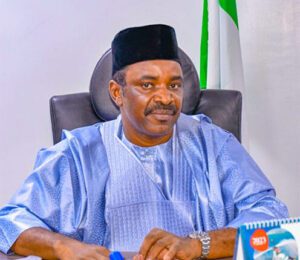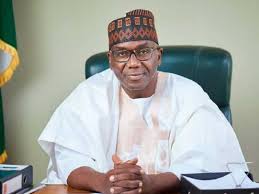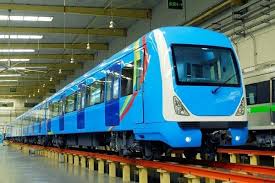NSC’s economic regulatory appointment meant to address port challenges — Perm Sec
…Sues for stakeholders cooperation
Barth Ndubuwah, Port Harcourt
The Permanent Secretar, Federal Ministry of Transportation, Dr (Mrs) Magdalene Ajani has restated the role of the Nigerian Shippers’ Council (NSC) as interim Port Economic Regulator, stressing that the challenges hitherto bedeviling the ports have been tackled. Such problems, she said included, lack of infrastructure, inefficiency, increased container dwell time,high clearing costs and high vessel turnaround time, among others.
Mrs Ajani stated this in a one-day sensitisation seminar for stakeholders in the maritime industry in Port Harcourt, organised by the Federal Ministry of Transportation in collaboration with the Nigerian Shippers’ Council.
Represented by Mr Pius Odey, the Permanent Secretary said the appointment of the Nigerian Shippers’ Council as Economic Regulator was therefore to create an effective regulatory regime at the ports to control tariff and rate charges. A role, she said has been effectively played by NSC since its appointment in 2015 by the Federal Government.
She expressed joy that the initial resistance by maritime stakeholders on the appointment of NSC as Economic Regulator has died down and the Council has since received the cooperation of the stakeholders.
The Permanent Secretary therefore urged the stakeholders to sustain the tempo for overall success of the ease of doing business policy of the Federal Government and its attendant growth of the nation’s economy.
“I therefore wish to re-iterate the position of Government that the Nigerian Shippers` Council is the Ports Economic Regulator and enjoin all stakeholders in the maritime industry to give the Council the needed cooperation and support in the execution of this mandate,” She said.
Dr Ajani opined that the NSC’s mandate as Port Economic Regulator be reflected in subsequent concessionaires’ agreements, while reiterating that NSC remains the interim Port Economic Regulator, until the establishment of the National Transport Commission as an Independent Regulator.
Earlier in his welcome address, the Executive Secretary of Nigerian Shippers’ Council, Hon Emmanuel Jime had described the maritime industry in Nigeria as a catalyst to the nation’s economic development, noting that maritime and transportation directly or indirectly influence the growth of industries in any given society.
Represented by the South South Director of NSC, Mr Glory Onojedo, the Executive Secretary noted thus, “We are all aware that the maritime industry plays an important role in the development of any economy.
“As a catalyst to the nation’s economic development, maritime, transportation and it’s related activities influence the growth of industries directly or indirectly and exerts great influence on the general price of goods and services,” Jime said.
He said with the concession of the ports in 2006, one would have expected an increase in cargo inflow, but regrettably the West and Central African subregions still witness the least cargo volume, contrary to global standards.
Jime attributed the trade imbalance to the composition of sub-Saharan African trade, which he said is about 6 per cent of global trade, with 70 per cent of export cargoes as primary commodities, while majority of imports are consumer goods.
The Executive Secretary said there is need to develop the nation’s industrial base to balance trade and boost the nation’s economy. He emphasised that the port as a critical infrastructure needs to be made competitive and guard against monopoly to enable numerous players enter and exit the port, while enjoying relatively low prices and attendant service delivery associated with competition.
Jime said it is against this backdrop that the Federal Government appointed NSC as Economic Regulator to control tariff, rates, charges and other related economic services. He noted that NSC in the course of its mandate has developed and implemented a strategic plan subject to review every three years.
He identified some of the NSC’s achievements as Economic Regulator to include, cost moderation after constant engagements with service providers, promotion and development of transport infrastructure to facilitate cargo delivery and establishment of machineries for monitoring compliance with set operational standards, among others.
The Executive Secretary thanked the Ministry of Transportation, sister parastatals and other stakeholders for their support in carrying out its mandate. He urged them not to hesitate in calling the attention of NSC to the areas that need improvement for the overall development of the nation’s economy.
Some stakeholders during the interactive session, appealed to the Federal Government to direct operations to other ports, especially Eastern ports to decongest traffic at Lagos ports.
They equally frowned at the activities of multiple agencies at the ports, which they said delay operations and increase costs.
The programme with its theme, ‘Promoting Competitiveness and Compliance In Nigerian Maritime Industry: Mandate of the Nigerian Shippers’ Council In Focus’, also featured paper presentation by an Economics and Data Analytics Expert, Prof Bongo Adi.




